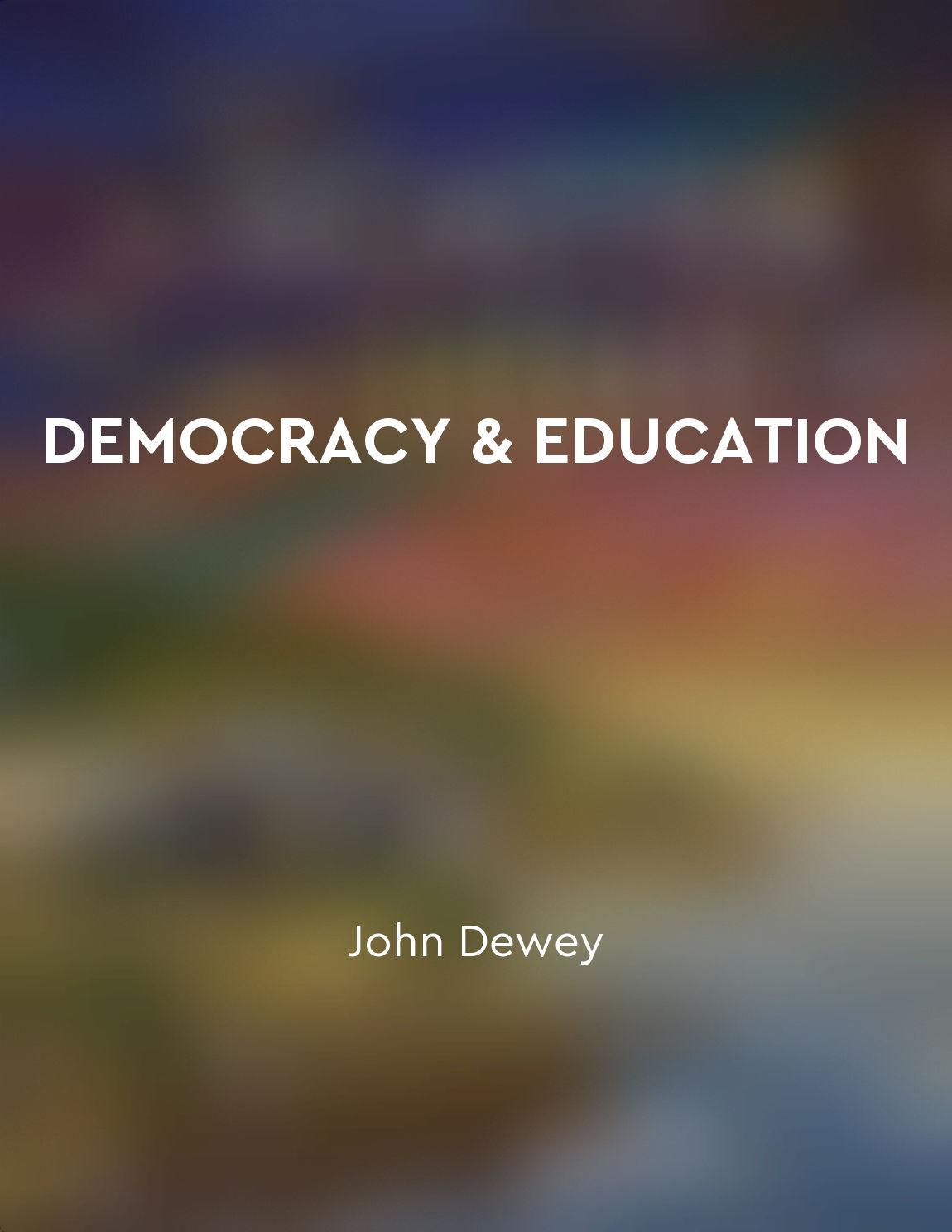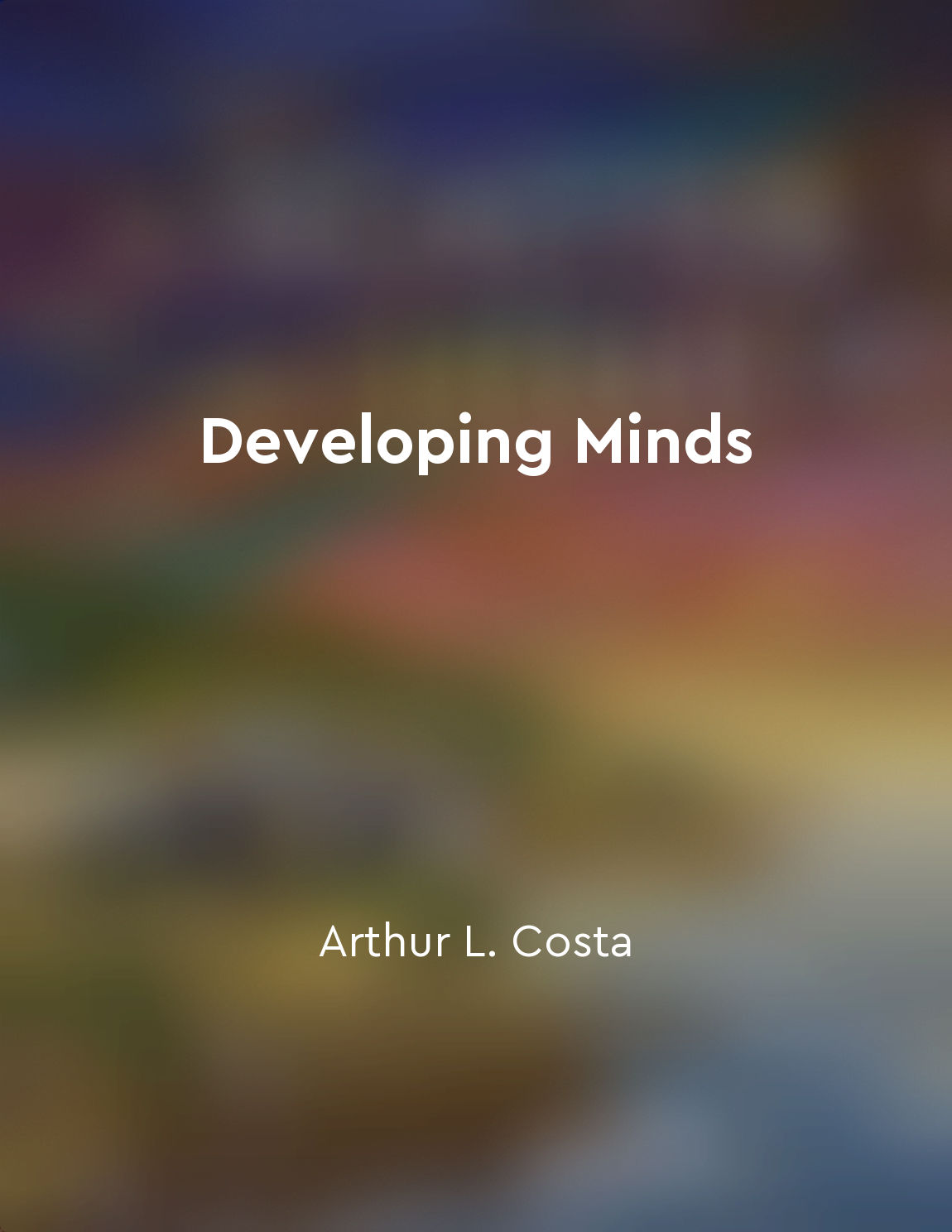The goal of education is to produce morally upright citizens from "summary" of The Republic of Plato by Plato
In our ideal city, education plays a vital role in shaping the character of our citizens. The purpose of education is not merely to impart knowledge and skills, but to cultivate virtue and morality in the individuals who will eventually become leaders and members of our society. Education should instill in our youth a sense of justice, temperance, courage, and wisdom, which are the cornerstones of a harmonious and just society. Through a carefully designed curriculum, students will be exposed to various subjects and disciplines that will not only train their minds but also nurture their souls. They will be taught the importance of self-discipline, responsibility, and respect for others. By studying the works of great philosophers and thinkers, they will learn to think critically and reflect deeply on the nature of justice, goodness, and truth. Moreover, education should not be limited to academic pursuits alone. Physical education and training in the arts and music are essential components of a well-rounded education. Through physical exercise and artistic expression, students will learn to appreciate the beauty and harmony in the world around them, and develop a sense of balance and grace in their lives. Teachers, as the guardians of knowledge and virtue, play a crucial role in the moral education of our citizens. They must lead by example, demonstrating integrity, fairness, and compassion in their interactions with students. By fostering a nurturing and supportive learning environment, teachers can inspire their students to strive for excellence and moral excellence in all aspects of their lives.- The goal of education is not simply to produce knowledgeable and skilled individuals, but to cultivate morally upright citizens who will contribute to the well-being and prosperity of our society. By instilling in our youth the virtues of justice, temperance, courage, and wisdom, we can build a city founded on principles of harmony, justice, and excellence.
Similar Posts

Education plays a role in democratic decisionmaking
In a democratic society, education is not just about acquiring knowledge and skills; it plays a crucial role in shaping the dec...

Democracy values individual rights
Democracy is not merely a system of government; it is a way of life. It is founded on the fundamental principle that individual...
Revolution is justified in certain circumstances
Revolution, as an act of overthrowing the existing government, can be deemed justifiable under certain conditions. According to...

Developing minds should be encouraged to embrace diversity
In our ever-evolving world, it is crucial to instill in young minds the value of embracing diversity. Encouraging developing mi...
A focus on rigorous curriculum often leads to superficial learning and memorization
The idea that a rigorous curriculum can sometimes result in superficial learning and mere memorization is a critical point that...
Education is essential for good citizenship
In order to understand the importance of education in creating good citizens, we must first consider the nature of citizenship ...


